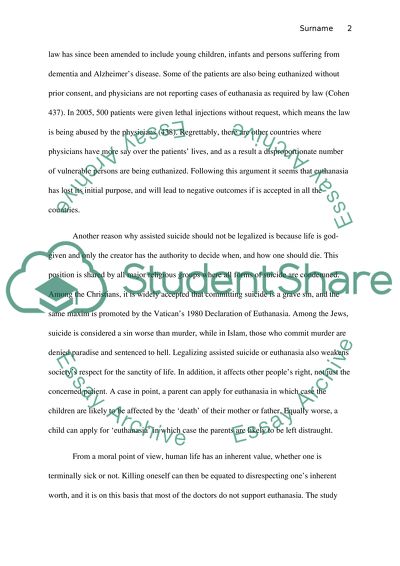Cite this document
(“Why Euthanasia Should Not Be Legalized Research Paper”, n.d.)
Why Euthanasia Should Not Be Legalized Research Paper. Retrieved from https://studentshare.org/psychology/1492807-this-is-an-argumentative-persuasive-paper-not-a
Why Euthanasia Should Not Be Legalized Research Paper. Retrieved from https://studentshare.org/psychology/1492807-this-is-an-argumentative-persuasive-paper-not-a
(Why Euthanasia Should Not Be Legalized Research Paper)
Why Euthanasia Should Not Be Legalized Research Paper. https://studentshare.org/psychology/1492807-this-is-an-argumentative-persuasive-paper-not-a.
Why Euthanasia Should Not Be Legalized Research Paper. https://studentshare.org/psychology/1492807-this-is-an-argumentative-persuasive-paper-not-a.
“Why Euthanasia Should Not Be Legalized Research Paper”, n.d. https://studentshare.org/psychology/1492807-this-is-an-argumentative-persuasive-paper-not-a.


